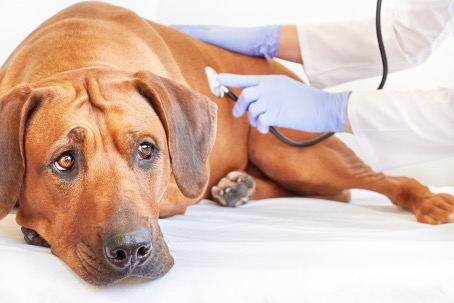September is Animal Pain Awareness month. It is an essential subject because animals feel pain just like we do but can’t tell us when they hurt. We aim to educate pet parents on recognizing the signs of pain in their pets and how they can help them.
How Can I Tell if My Pet is in Pain?
Even though our pets can’t talk, there are symptoms you can look for that indicate your pet is experiencing some distress. Here are some common signs of a pet in pain:
- Decrease or loss of appetite
- Being off by themselves – not joining the family
- Mood or temperament changes
- Lameness (limping)
- Crying or whining
- Excessive licking or scratching
Then there are more specific signs of pain depending on the type of animal. For example,
Dogs:
- Tight or twitching muscles
- Shaking or trembling
- Arched back
- Holding their head below their shoulders
- Panting
Cats:
- Hiding
- Vocalization, e.g., frequent unpleasant or urgent sounding meowing, groaning, hissing, growling.
- Grooming less or increased grooming but to a particular area (potentially leading to bald patches and sore skin).
- Panting is not usual for a cat. If your cat is panting, it can indicate extreme fear, pain, or difficulty breathing.
- Displaying aggression when you touch them in some regions of their body.
Exotic Pets
It can be harder to recognize when exotic pets such as birds, rabbits, hamsters, Guinea pigs, and reptiles are in pain. Signs of pain and distress in exotic pets are often individual or species-specific.
Many exotic pets are prey animals. Their instincts help protect them from predators. One of these instincts is to become very still and not perform their normal behaviors when they are in distress. Most of these pets will not vocalize when they are in pain unless the pain is severe and acute. And some of them simply cannot vocalize at all.
While this behavior may help keep them safe in the wild, it can make it more difficult as a pet parent to know when their pet is in pain.
With exotic pets, it is essential to look for any changes in your pet’s behavior. For example, are they eating less or not eating at all? Are they less active? If you suspect but are not sure if your exotic pet is in pain, it is safest to give us a call and tell us what you have observed so we can assess if your pet needs a veterinarian examination.
Horses
Horses in pain become restless and paw at the ground. They may look at the painful area and try to kick at it or roll around in the dirt. If the pain is very severe, they may refuse to move and prefer to stand with their head drooping. These are all common signs of abdominal pain, or colic, in horses.
Farm Animals
The importance of pain management in livestock has been rising over the years. It is our duty to advocate for these patients the same as all our other patients.
We will not try to list all the farm animals and their symptoms of pain here. But you can apply the above common symptoms to farm animals. If you would like more information about farm animals in pain, please check out this link from MedCrave Research: Pain Recognition and Scales for Livestock Patients
Pain Management
Once we have assessed your pet, horse or farm animal and found the root cause of their problem, we begin treatment. Part of the treatment includes managing their pain. Of course, no one wants to see them suffer. But there are also physiological benefits to treating and managing pain in pets. When we do not control their pain, they can experience an increase in the production of stress hormones, such as cortisol. This increase in hormones can cause:
- Increased blood pressure
- Slower wound healing
- Increased length of hospital stays (after surgery)
- A decrease in gastrointestinal motility
Therefore, when necessary, we administer pain medication for your pet to help them heal from whatever is causing them pain. A pet recovering from illness, injury, or surgery needs to be kept calm and comfortable so its body can heal quickly.
We also have supplements and natural pain relievers to help relieve your animal’s pain. We are happy to answer any questions about which product/s are best for your pet. You can also check out products from our on-line pharmacy.
Conclusion
Pain is universal to all animals, and we strive at Hammond Veterinary Hospital to provide compassionate and a high level of veterinary care to the Marlow community and surrounding areas through services at our facility and house & farm calls. Our level of care is maintained by the state-of-the-art diagnostic equipment and highly trained staff used to treat your pet.
If you observe any of the above symptoms or changes in your pet or farm animal, please contact us and schedule an appointment so we can assess the problem and get them on the road to feeling better and being pain free.
Sincerely,
Dr. Jeff Hammond
Hammond Veterinary Hospital

